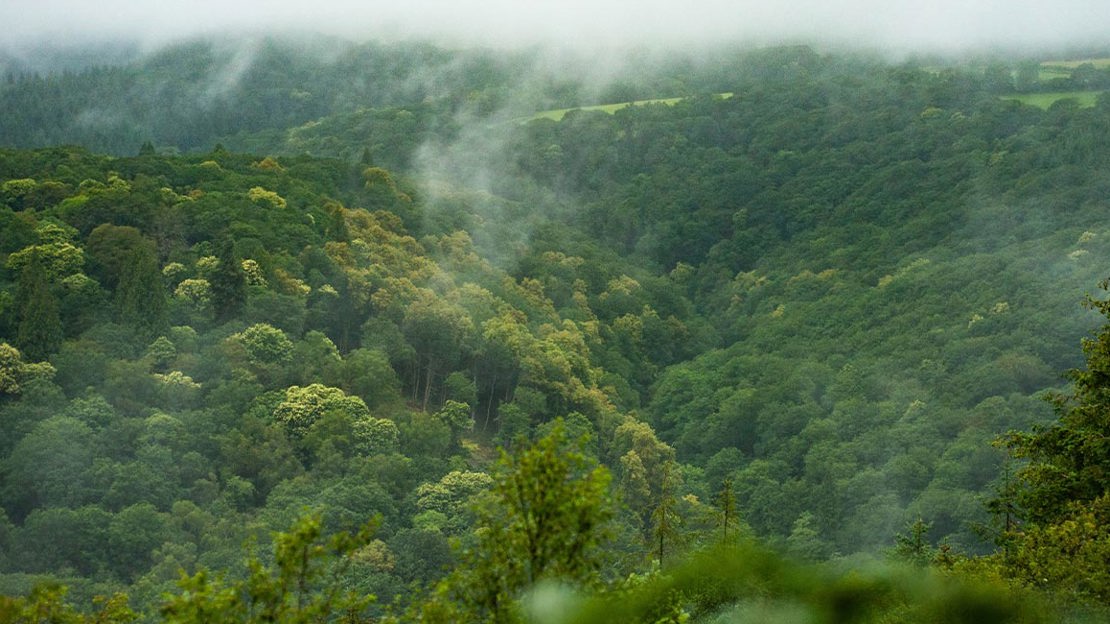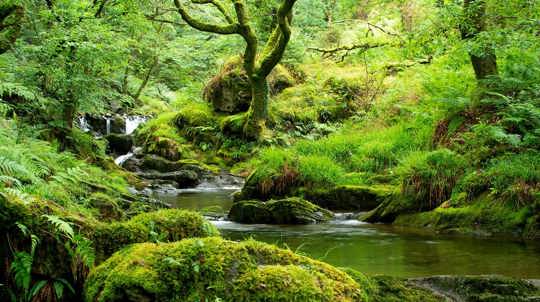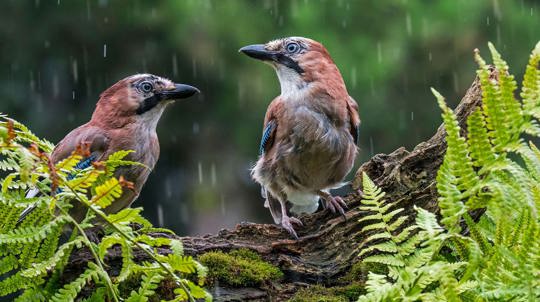The state of Wales’ rainforests
Discover the beauty of our rainforests and why the Alliance for Wales’ Rainforests is asking the Welsh government to do more to protect them.
Video length: 00:02:05
This is the heart of the temperate rainforest here in Wales. Every available spare bit of bark, exposed piece of rock, is actually just covered in life, and that makes this a really special place.
This temperate rainforest habitat is only found on 1% of the planet’s surface where these conditions are just right. You feel like you're in this amazing wonderland. They’re a real link back to the deep past and they show that humans can manage the landscape and retain these really important, diverse habitats.
They are incredibly important for all kinds of rare animals and plants. They enable you to really connect with nature in Wales, which is why they're so special.
There's a lot of uncertainty about the future, so we really have a duty to look after these internationally important species.
We know that with a deepening climate crisis our nature in Wales is under threat. We need policies and clear action in legislation that will help protect and restore these forests.
If we're going to make these woods resilient in the face of all the pressures coming their way we really need to do that at a landscape scale. If we look the other way for too long we'll be going backwards again, so if these places are bigger and better connected, they've got a much better chance of surviving the changes that are coming.
Less than a quarter of Wales’ temperate rainforest is in good condition, with most sites facing multiple serious threats.
According to the State of Wales’ Rainforests report, published by the Alliance for Wales’ Rainforests (AWR), only 22% of surveyed sites are in good condition. None are considered to be in very good condition. The report shows that without urgent action, Wales risks losing some of its most ecologically important woodland.
A globally rare habitat
Temperate rainforests thrive in the wet, mild conditions created by Wales’ coastal climate and mountainous terrain. These woodlands are characterised by lush layers of mosses, liverworts and ferns, and provide refuge for rare and specialist species of birds, bats and over 400 bryophytes and lichens.
Despite their importance, temperate rainforests face growing threats including:
- invasive species such as rhododendron ponticum – present in 70% of sites surveyed
- overgrazing by livestock and deer, disrupting natural regeneration and damaging the forest structure
- air pollution and climate change, which are degrading habitat quality
- ash dieback, which threatens the future of key tree species on which hundreds of lichen species depend.
The report also highlights that just 12% of Wales’ rainforest currently receives legal protection. This leaves large areas vulnerable to inappropriate management or further degradation – despite national goals to protect 30% of land for nature by 2030.
A call to restore and reconnect
The Alliance for Wales’ Rainforests, a partnership of leading conservation organisations including the Woodland Trust, Wildlife Trusts Wales, Plantlife, RSPB Cymru, National Trust Cymru and Eryri National Park Authority, has outlined a clear set of actions needed to protect and restore this precious habitat:
- Increased protection and restoration - expand legal protections and prioritise restoration in high-connectivity areas to create resilient rainforest networks.
- Enhanced management - implement conservation grazing and other active management strategies to maintain healthy forest structures, reduce canopy overcrowding and support natural regeneration.
- Invasive species control - urgently manage both non-native and native invasive species to improve habitat quality.
- Investment in research - enhance research on the role of rainforests in carbon storage, ecosystem resilience, and the impacts of pollution.
Natural and cultural heritage at risk
Wales’ temperate rainforests are not only ecological treasures, they are part of the nation’s cultural and historical landscape, helping to connect people with nature. Without stronger legal safeguards, better land management and strategic investment in restoration, these forests face a future of continued decline.
Kylie Jones Mattock, director for Wales at the Woodland Trust, said:
“This report marks a critical step in safeguarding Wales’ natural heritage, underlining the importance of proactive rainforest conservation for future generations. We are urging the Welsh Government to take notice, and act now whilst we still have time to protect and restore these vital habitats.”






